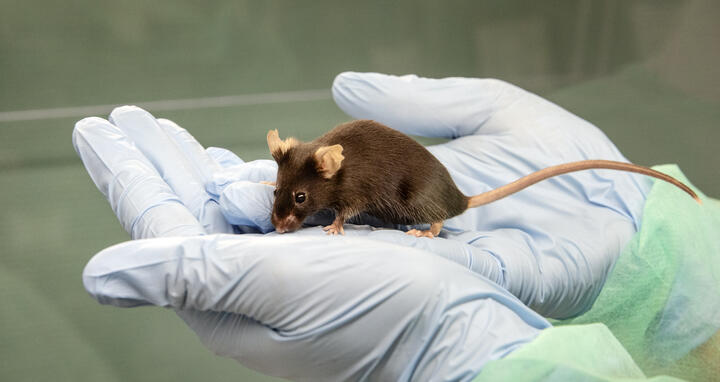Improving openness in animal research in Germany
While public debate on animal research has increased in various European countries and research institutions, there is still considerable reluctance within many academic institutions, and amongst scientists, to engage in a more open and consistent dialogue with the public. Many scientists are still afraid that speaking more openly about their research and their motivations will make them targets, while others lack the confidence to put the case for animal research to what they view as a sceptical public.
On January 29th, EARA and its Berlin partners will host a workshop for those working in the life sciences sector who are currently hesitant to speak out. “We hope that this workshop, and those hosted by EARA in other countries, will help to kickstart a cultural change and support research institutions to handle this issue constructively,” says Kirk Leech, Executive Director of EARA.
The workshop is designed to support researchers, caretakers, communications staff and institutions that wish to be more open and proactive about the communication of animal research to the public, including political decision-makers, and opinion leaders in Germany. It will focus on why they can and should talk about animal research, while also considering alternatives such as organoids, and computer modelling that can complement or replace traditional approaches.
Speakers
- Kirk Leech (Executive Director, EARA)
- Professor Michael Gotthardt (Senior Researcher, Max Delbrück Center)
- Dr Andreas Lengeling (Officer for Animal Research, Max Planck Society)
- Sascha Karberg (Editor of science section, Der Tagesspiegel)
Schedule
12:00-12:30: Registration
12:30-14:15: Presentations (20min per speaker + 5 min questions)
14:15-14:45: Coffee break
14:45-16:00: Panel discussion with the speakers as well as Professor Christa Thöne-Reineke, FU Berlin
16:00-16:30: Networking session
Venue
Konrad-Cohn-Hörsaal
Campus Charité Mitte
Virchowweg 24
10117 Berlin
Further information
- Further information and registration
- Journalists can also register via email: presse@mdc-berlin.de
- EARA
- Transparent communication on animal research at the Max Delbrück Center
Contact
Jana Schlütter
Editor, Communications
Max Delbrück Center
+49 30 9406-2121
jana.schluetter@mdc-berlin.de or presse@mdc-berlin.de
Nuno Miguel Gonçalves
Events & Projects Officer
The European Animal Research Association EARA
+44 351 934950684
ngoncalves@eara.eu
- Max Delbrück Center
-
The Max Delbrück Center for Molecular Medicine in the Helmholtz Association (Max Delbrück Center) is one of the world’s leading biomedical research institutions. Max Delbrück, a Berlin native, was a Nobel laureate and one of the founders of molecular biology. At the locations in Berlin-Buch and Mitte, researchers from some 70 countries study human biology – investigating the foundations of life from its most elementary building blocks to systems-wide mechanisms. By understanding what regulates or disrupts the dynamic equilibrium of a cell, an organ, or the entire body, we can prevent diseases, diagnose them earlier, and stop their progression with tailored therapies. Patients should be able to benefit as soon as possible from basic research discoveries. This is why the Max Delbrück Center supports spin-off creation and participates in collaborative networks. It works in close partnership with Charité – Universitätsmedizin Berlin in the jointly-run Experimental and Clinical Research Center (ECRC), the Berlin Institute of Health (BIH) at Charité, and the German Center for Cardiovascular Research (DZHK). Founded in 1992, the Max Delbrück Center today employs 1,800 people and is 90 percent funded by the German federal government and 10 percent by the State of Berlin.





